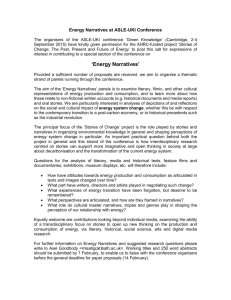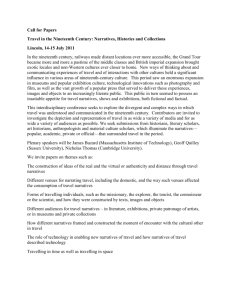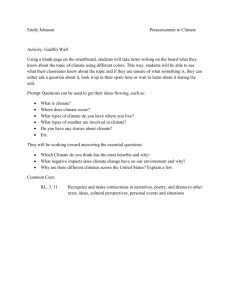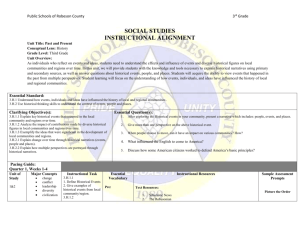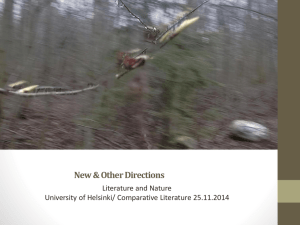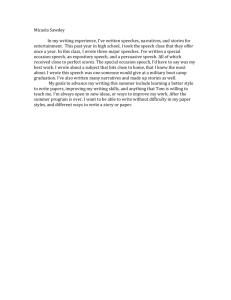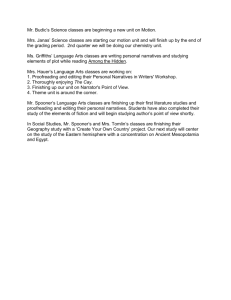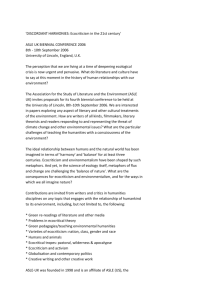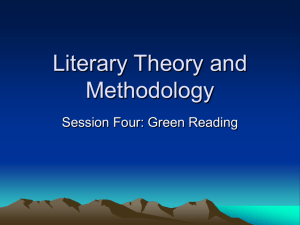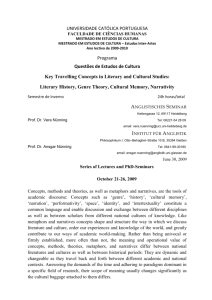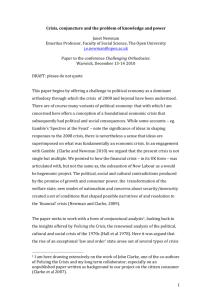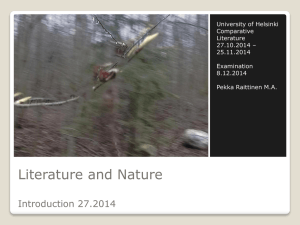2015
advertisement
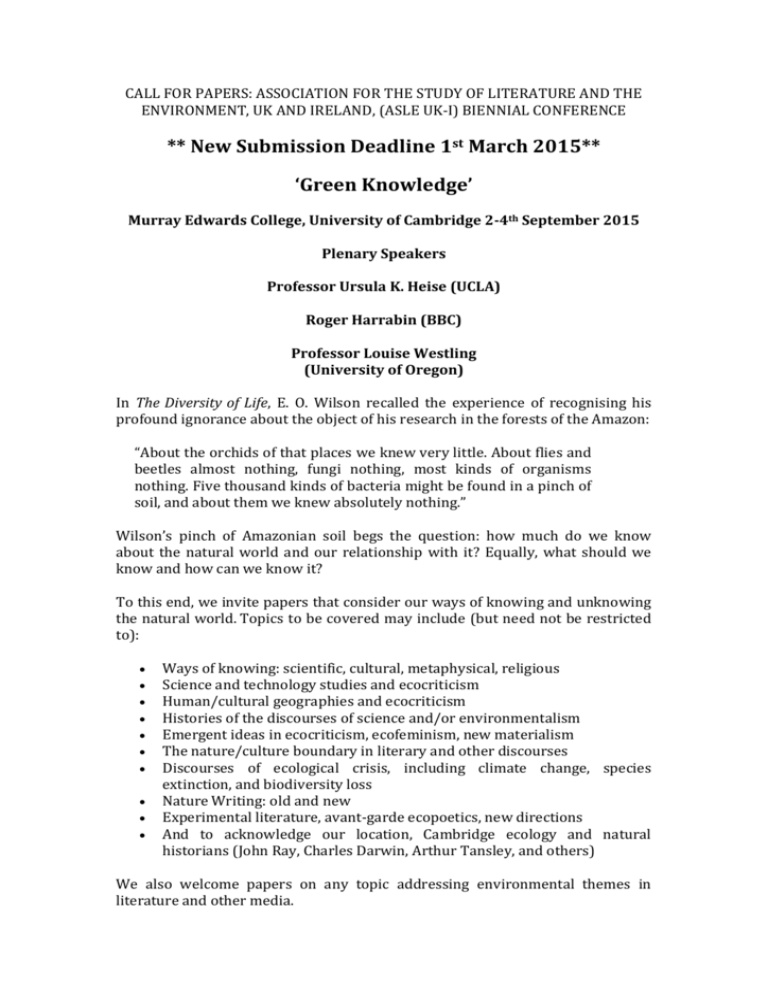
CALL FOR PAPERS: ASSOCIATION FOR THE STUDY OF LITERATURE AND THE ENVIRONMENT, UK AND IRELAND, (ASLE UK-I) BIENNIAL CONFERENCE ** New Submission Deadline 1st March 2015** ‘Green Knowledge’ Murray Edwards College, University of Cambridge 2-4th September 2015 Plenary Speakers Professor Ursula K. Heise (UCLA) Roger Harrabin (BBC) Professor Louise Westling (University of Oregon) In The Diversity of Life, E. O. Wilson recalled the experience of recognising his profound ignorance about the object of his research in the forests of the Amazon: “About the orchids of that places we knew very little. About flies and beetles almost nothing, fungi nothing, most kinds of organisms nothing. Five thousand kinds of bacteria might be found in a pinch of soil, and about them we knew absolutely nothing.” Wilson’s pinch of Amazonian soil begs the question: how much do we know about the natural world and our relationship with it? Equally, what should we know and how can we know it? To this end, we invite papers that consider our ways of knowing and unknowing the natural world. Topics to be covered may include (but need not be restricted to): Ways of knowing: scientific, cultural, metaphysical, religious Science and technology studies and ecocriticism Human/cultural geographies and ecocriticism Histories of the discourses of science and/or environmentalism Emergent ideas in ecocriticism, ecofeminism, new materialism The nature/culture boundary in literary and other discourses Discourses of ecological crisis, including climate change, species extinction, and biodiversity loss Nature Writing: old and new Experimental literature, avant-garde ecopoetics, new directions And to acknowledge our location, Cambridge ecology and natural historians (John Ray, Charles Darwin, Arthur Tansley, and others) We also welcome papers on any topic addressing environmental themes in literature and other media. Please send abstracts of up to 250 words for 20-minute presentations to asleuki2015@admin.cam.ac.uk by 1st March 2015. Proposals for pre-formed panels and roundtables are welcomed. Conference updates will be accessible via the ASLE-UKI website: www.asle.org.uk. We may seek to publish a selection of conference proceedings in our journal Green Letters: Studies in Ecocriticism, published in association with Routledge. Energy Narratives Conference Strand Energy Narratives at ASLE-UKI Conference The AHRC-funded project ‘Stories of Change: The Past, Present and Future of Energy’ seeks expressions of interest in contributing to a special section of the conference on ‘Energy Narratives’ Provided a sufficient number of proposals are received, we aim to organise a thematic strand of panels running through the conference. The aim of the ‘Energy Narratives’ panels is to examine literary, filmic, and other cultural representations of energy production and consumption, and to learn more about how these relate to non-fictional written accounts (e.g. historical documents and media reports) and oral stories. We are particularly interested in analyses of depictions of and reflections on the social and cultural impact of energy system change, whether this be with respect to the contemporary transition to a post-carbon economy, or to historical precedents such as the industrial revolution. The principal focus of the ‘Stories of Change’ project is the role played by stories and narratives in organizing environmental knowledge in general and shaping perceptions of energy system change in particular. An important practical question behind both the project in general and this strand of the conference is how interdisciplinary research centred on stories can support more imaginative and open thinking in society at large about decarbonisation and the transformation of the current energy system. Questions for the analysis of literary, media and historical texts, feature films and documentaries, exhibitions, museum displays, etc. will therefore include: How have attitudes towards energy production and consumption as articulated in texts and images changed over time? What part have writers, directors and artists played in negotiating such change? What experiences of energy transition have been forgotten, but deserve to be remembered? What perspectives are articulated, and how are they framed in narratives? What role do cultural master narratives, tropes and genres play in shaping the perception of our relationship with energy? Equally welcome are contributions looking beyond individual media, examining the ability of a transdisciplinary focus on stories to open up new thinking on the production and consumption of energy, via literary, historical, social science, arts and digital media research. For further information on Energy Narratives and suggested research questions please write to Axel Goodbody <mlsahg(at)bath.ac.uk>. Working titles and 250 word abstracts should be submitted by 1st March.
